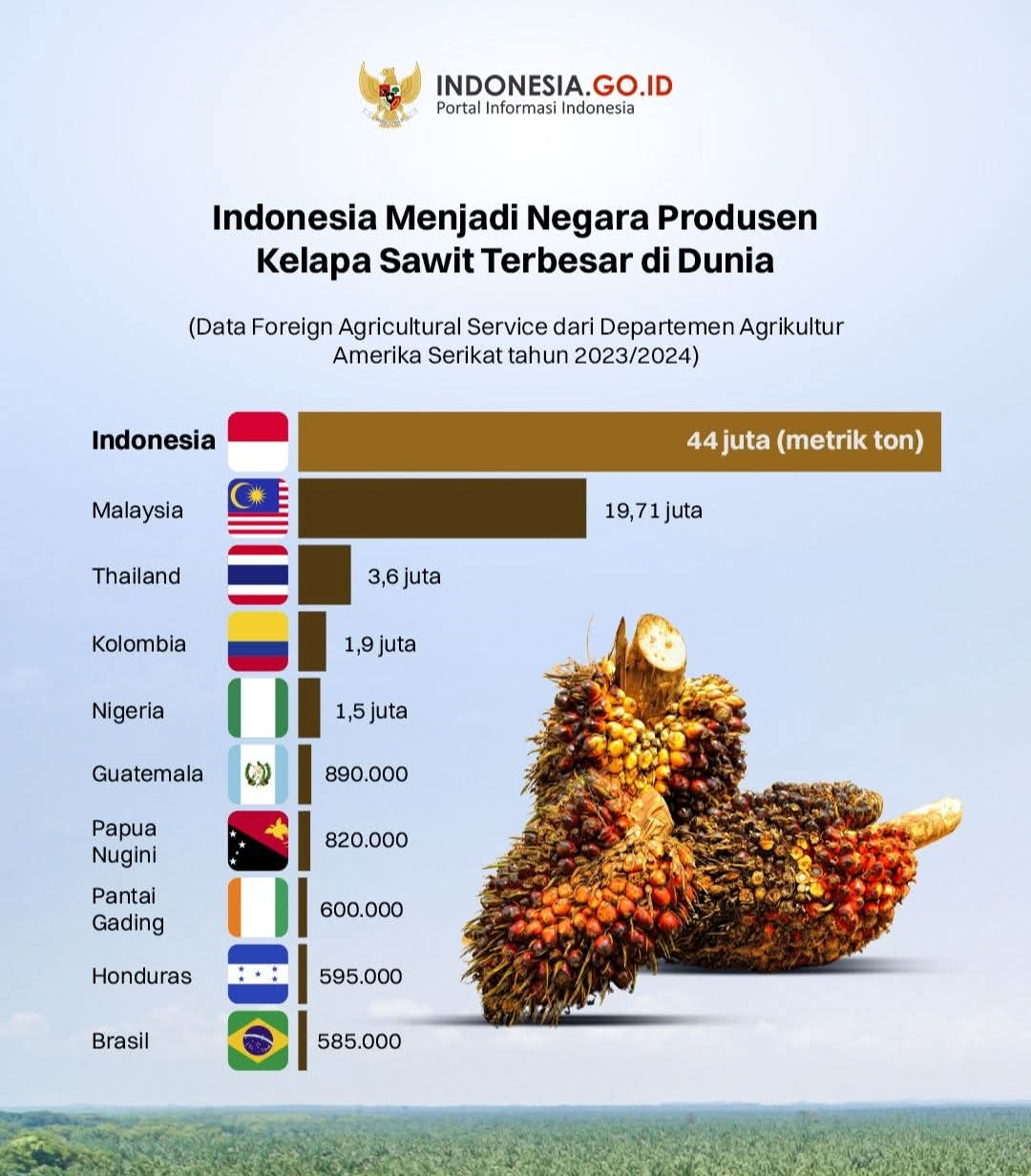Foreign Dominance in Indonesia’s Palm Oil Industry: Challenges and Opportunities
Palm oil has become a crucial commodity across various sectors, ranging from the food industry to biofuels. As the world’s largest palm oil producer, Indonesia plays a vital role, contributing 57% of global production in 2023/2024. However, despite being a major player, many question the extent to which Indonesia truly benefits from this dominance.
Reliance on Foreign Investors
One of the intriguing phenomena is the significant control of palm oil plantations by foreign and national private companies, which accounts for approximately 55%-60%. Investors from countries such as Malaysia, Singapore, and even Western nations like the Netherlands and the United Kingdom have heavily invested in this sector. The primary reasons include a combination of Indonesia’s ideal tropical climate, relatively low production costs, and abundant land availability.
On the other hand, local farmers, both plasma and independent, control only about 35%-40% of the plantations. The government itself holds a mere 5%-10%. These figures highlight a significant disparity, where control over one of Indonesia’s key natural resources is largely in the hands of external parties.
Economic and Social Impacts
Foreign dominance in the palm oil industry has led to several consequences. On one side, foreign investment accelerates the sector's growth by providing capital, technology, and access to international markets. However, on the other side, the substantial profits generated by this industry largely flow abroad, limiting the added value enjoyed by Indonesia.
For local farmers, access to technology and capital often remains a challenge. This disparity can lead to dependency on large corporations, which ultimately diminishes the bargaining power of small-scale farmers in the market.
Strategic Steps for Palm Oil Sovereignty
Indonesia needs to take strategic measures to maximize the benefits of the palm oil industry for its people. Some recommended actions include:
1. Promoting Measured Nationalization Policies
The government should strengthen regulations to ensure a larger share of profits remains within the country. This could be achieved through progressive export taxes or incentives for companies that prioritize partnerships with local farmers.
2. Enhancing Technology and Education for Local Farmers
Providing local farmers with access to modern technology and agribusiness management training will help improve their productivity.
3. Transparency and Supervision of Foreign Investments
The government must ensure that foreign investments in this sector are not solely profit-driven but also support sustainable development.
Conclusion
As the world’s largest palm oil producer, Indonesia has a responsibility to ensure this industry contributes optimally to the welfare of its people. While foreign investments bring certain advantages, achieving a balance between economic gains and resource sovereignty must be a top priority. With the right strategic steps, Indonesia can not only remain the largest producer but also become a nation that fully controls and enjoys the benefits of its natural wealth.




Comments
Post a Comment